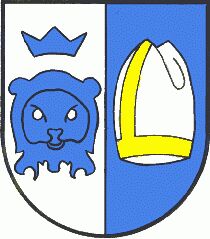Bad Waltersdorf: Difference between revisions
Jump to navigation
Jump to search
Knorrepoes (talk | contribs) m (Text replace - "|width="15%"|50 px|right |}" to "|width="15%"|50 px|right |}<seo title="Wappen, Gemeindewappen" />") |
Knorrepoes (talk | contribs) m (Text replace - "|width="15%"|50 px|right |}<seo title="Wappen, Gemeindewappen" />" to "|width="15%"|50 px|right |}<seo title="Wappen von Österreich" />") |
||
| Line 3: | Line 3: | ||
|width="70%" align="center" |'''Heraldry of the World<br>Civic heraldry of [[Austria]] - [[Austria|Österreichische Gemeindewappen]]''' | |width="70%" align="center" |'''Heraldry of the World<br>Civic heraldry of [[Austria]] - [[Austria|Österreichische Gemeindewappen]]''' | ||
|width="15%"|[[File:Austria.jpg|50 px|right]] | |width="15%"|[[File:Austria.jpg|50 px|right]] | ||
|}<seo title="Wappen | |}<seo title="Wappen von Österreich" /> | ||
'''BAD WALTERSDORF''' | '''BAD WALTERSDORF''' | ||
Revision as of 11:05, 8 November 2012
| Heraldry of the World Civic heraldry of Austria - Österreichische Gemeindewappen |
BAD WALTERSDORF
State : Steiermark
District : Hartberg
Origin/meaning
The arms were granted on March 20, 1967.
When the arms were granted, the municipality was still called Markt Waltersdorf in Oststeiermark. Some time later, this was changed officially to Bad Waltersdorf, as there is a thermal spa in the town.
The lion's head as in the arms appears on several pieces of Roman sculpture, which were found in the municipality. The Ancient Crown represents Early Christianity. The mitre honours Waltersdorf, as the parish is a so-called Urpfarre, a base of missionaries in the Early Middle Ages, when this part of Styria was converted to the Christian faith.
Literature : Image provided by Karl Palfrader (k.palfrader@aon.at), MStLA 19 (1969), p. 138

